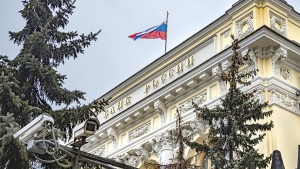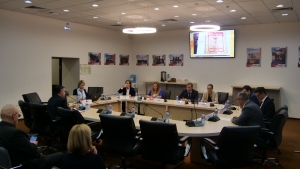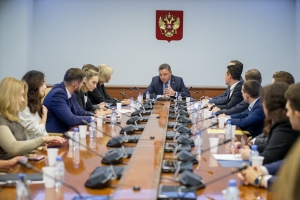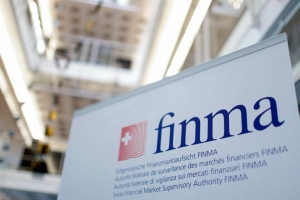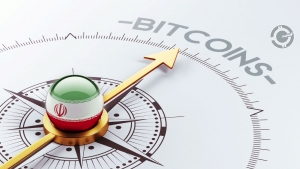LAWYER APPRECIATED THE PLANS OF CENTRAL BANK TO CHANGE THE GROUNDS FOR BLOCKING ACCOUNTS
Natalya Manuylova, a forensic expert and teacher at the Moscow Digital School, commented on the Bank of Russia’s plans at the request of Izvestia to clarify the signs that could cause banks to consider their clients' actions suspicious.
The list of reasons for blocking an account has not been changed since they appeared in March 2012. Earlier, on February 17, it became known that the Central Bank proposes not only to introduce new criteria, but also to exclude some of the more than 100 existing ones, according to which banks recognize transactions as doubtful.
“The Bank of Russia revised the list of unusual transactions, excluding a number of signs, and added new signs taking into account the realities of the financial market. It is worth noting that the list of unusual operations only orient banks to pay special attention to operations that have signs of unusual. Unfortunately, quite often confused are signs of dubious operations and operations that have signs of unusual ones”, the expert added.
Regarding the qualifications of operations with digital and virtual assets, much will depend on the qualifications of bank employees, Natalya Manuylova added.
According to her, if bank employees do not have enough qualifications, then Rosfinmonitoring will replenish with information about operations that are not related to dubious ones.
Moreover, the market will resume pressure on the business to provide documents not related to the operation, threats to block customer accounts, delays in operations.
“For example, the symptom in section 11,“ The transaction is related to the acquisition or sale of virtual assets ”should be adapted for banks in the existing risk management system. The Bank should develop its own additional criteria for qualifying such an operation as “doubtful,” for example, the amount of the transaction, the business reputation of the counterparty, the counterparty’s bank, and so on. Considering that a number of signs are quite common, I think that the Bank of Russia is waiting for a rather large number of requests from both banks and customers, but here it’s already in the form of complaints, ”concluded the forensic expert.
In February, Russian Prime Minister Mikhail Mishustin, during a meeting with the head of Sberbank German Gref, said that the bank’s technologies and services would be used to simplify the life of Russians and to create a state-owned digital platform.
Source: IZ.ru
QATAR BLOCKS CRYPTO ASSET SERVICES
The world is divided into parts regarding the cryptocurrency environment. Some advocate a ban on digital currency, others offer only some restrictions, and some states impose a complete ban on cryptocurrencies. The motivation for the ban and restrictions on cryptocurrency is the fight against crime and money laundering.
So the State of Qatar has added to the list of countries with a ban on the circulation of cryptocurrency. A statement by the Qatar Financial Center regulator states that "Virtual Asset Services cannot be held in or out of QFC at this time." It stated that the ban included “anything valuable that replaces a currency, can be sold or digitized and can be used for payment or investment”.
Simplecoin, a Netherlands-based cryptocurrency 'mining pool' set up to enable collaborative discovery of new virtual currency coins, and Chopcoin, a Bitcoin gaming platform, announced they would be shutting down before the EU Fifth Anti-Money Laundering Directive (5AMLD), came into effect in all EU Member States on 10 January 2020.
The 5AMLD requires providers of crypto platforms and wallets to identify their customers for anti-money laundering purposes.

Source: Intelligence for the Global Adviser and Wealth Manager.
OPERATORS OF INVESTMENT PLATFORMS ARE OBLIGED TO ORGANIZE MEASURES TO AML/CFT
From 01.01.2020, a new entity will appear on the financial market - the operator of the investment platform. In accordance with subparagraph 7) of clause 1 of article 2 of Federal law dated 02.08.2019 No. 259-FL "On attracting investments using investment platforms and on amending certain legislative acts of the Russian Federation" the operator of the investment platform is a business company created in accordance with the legislation of the Russian Federation, carrying out activities to organize investment attraction and included by the Bank of Russia in the register of investment platform operators.
It is worth noting that from 01.01.2020 the amendments to the Federal Law of 07.08.2001 also come into force. No. 115-FL "On combating the legalization (laundering) of proceeds from crime and the financing of terrorism" (hereinafter - Law No. 115-FL), according to which:
1. Operators of investment platforms become the subject of Law No. 115-FL (Supplement to the first part of Article 5 with a new fourth paragraph of the above law);
2. The operators of investment platforms are entrusted with the obligations specified in Article 7 of Law No. 115-FL, including the application of measures to freeze (block) money or other property in accordance with the requirements established by subparagraph 6 of paragraph 1 of Article 7 of Law No. 115- Federal Law.
3. The operators of investment platforms have been granted the rights specified in Article 7 of Law No. 115-FL, in particular:
- simplified identification of investment platform operators with respect to customers in certain cases, namely: when concluding agreements on the provision of investment assistance services involving investment using the investment platform for an amount not exceeding 100,000 rubles, provided that all settlements are carried out exclusively in non-cash form on accounts opened with a Russian credit institution;
- an assignment of the identification procedure to third parties - on the basis of the contract to entrust the credit organization with the identification or simplified identification of the individual customer, as well as the identification of the client’s representative, beneficiary and beneficial owner.
4. The internal control rules of the Investment Platform Operators are developed taking into account the requirements approved by the Central Bank of the Russian Federation in agreement with the authorized body, and approved by the head of the organization.
5. Qualification requirements for special officials responsible for the implementation of internal control rules, targeted internal control rules, as well as requirements for training and education, identification of clients, client representatives (including identification of the sole executive body as a representative of the client), beneficiaries and beneficial owners are determined in accordance with the procedure established by the Bank of Russia.
Please note that non-compliance with the requirements of Law No. 115-FL entails the prosecution of an official and organization on the basis of Article 15.27 of the Code of Administrative Offenses of the Russian Federation. The consequences of non-compliance with the requirements of the AML/CFT legislation May result in criminal prosecution.
For questions regarding the organization of work on the implementation of Law No. 115-FL and training, write to This email address is being protected from spambots. You need JavaScript enabled to view it. or This email address is being protected from spambots. You need JavaScript enabled to view it..
THE ROUNDTABLE PARTICIPANTS LEARNED ABOUT THE FEATURES OF SMART CONTRACTS
On November 5, 2019, a round table was held at the Moscow Chamber of Commerce and Industry on the topic: “Electronic Commerce. Smart contracts. New Opportunities of the Digital Economy ”, which discussed the main problems of legal support of electronic commerce.
At the event, the main trends of the digital economy were presented and the state of legal regulation of this sphere was outlined. According to Suren Vardanyan, Vice President of the Chamber of Commerce and Industry, opening the meeting, the Chamber pays special attention to digitalization issues: digital products are being developed that allow entrepreneurs to receive new services, and the Chamber follows the main economic trends. “We try at all the events that take place within the walls of the MCCI to develop specific proposals, which we then pass on to the authorities and all interested departments,” Vardanyan emphasized.
According to Igor Sudets, Deputy Director of the Digital State Development Department of the Ministry of Digital Development, Telecommunications and Mass Media of the Russian Federation, 17 draft laws are currently being drafted to regulate the main directions of digitalization of the Russian economy. In the near future it is expected that the Government will give instructions on the preparation of about 60 more draft laws. For example, the draft law on digital financial assets has already undergone seven editions, but has not yet been submitted to the State Duma. Now the eighth version of the document is being prepared. The total budget allocation for federal projects related to the implementation of digital technologies is 1634.9 billion rubles. The main national programs being implemented now, according to Igor Sudets, are a training program for the digital economy; digital infrastructure creation; digital technology development; digital security; development of legal regulation and the creation of digital state regulation. As for the latter, as stated by the representative of the Ministry of Communications, the basic principle of digital government is “a person does not need to know which authority he interacts with. He sends a request, and the state executes it. " Moreover, according to the expert, “the state itself should come to us”: after some time, every citizen can receive push notifications about what actions he needs to take: pay taxes, replace a driver’s license, etc.
Artem Dalevich, Vice President of the ICIE, spoke about the implementation of the secure transaction mechanism using escrow accounts on the Business Market platform, developed and implemented by the MCCI
Since lawyers made up a large share of the roundtable audience, one of the main topics of discussion was the legal regulation of electronic commerce. Senior Associate at Rödl & Partner Alexandra Nechaeva spoke about the main risks that accompany the conclusion of contracts in online trading. It was, in particular, about the interpretation of the concept of an offer and the moment of its receipt, as well as about the differences between online and distance trading. The speaker emphasized that there is no definition of electronic commerce in the legislative field, which leads to a rather arbitrary interpretation of the electronic commerce process in judicial practice. In addition, Alexandra Nechaeva said that Russia has not developed approaches to determining the jurisdiction of transactions involving foreign elements. Summing up her speech, the speaker noted that “the problems of determining jurisdiction are now one of the first in matters of the digital economy”.
Svetlana Mochalina, head of the risk management department at L'Occitane, spoke about the legal risks of an international company in the retail industry in Russia. A franchise firm defended its interests by registering trademark rights. This almost completely prevented parallel sales.
The topic of the speech of DDC Ltd Director Ilya Mikheev was smart contracts. Since this is a very promising form of digital agreements, the message caused serious interest from the audience. According to the expert, for the first time a smart contract appeared a long time ago - in 1996. “In principle, a smart contract is a computer code that guarantees the fulfillment of obligations subject to all agreed conditions,” the speaker explained. Another important distinguishing feature of a smart contract is that it must be hosted in a decentralized, trusted environment. Such an environment is guaranteed, in particular, by blockchain technology. Smart contracts are already used, for example, in diamond verification.
The representative of the company-operator of fiscal data OFD.ru Dmitry Pogozhev talked about the currently introduced product labeling system, its advantages and disadvantages.
Summing up the round table, the moderator of the meeting, forensic financial expert Natalya Manuylova noted that "the digital economy is not only cryptocurrency and blockchain." The main purpose of the event was to identify the risks that entrepreneurs face in introducing digital technologies, and to outline ways to minimize them, including using compliance procedures.
The Advisor to the President of the MCCI Marina Evteeva thanked all the speakers and participants for the informative conversation and assured that all the proposals that were voiced would be summarized and brought to the attention of the leadership of the chamber.
The event was supported by the Government of Moscow and the Department of Economic Policy and Development of Moscow...
THE FEDERATION COUNCIL DISCUSSED CURRENT TRENDS IN THE LEGISLATIVE REGULATION OF THE DIGITAL TRANSFORMATION OF THE ECONOMY
The Chairman of the Federation Council Committee on the Rules and Organization of Parliamentary Activities, Vyacheslav Timchenko, held a round table on the topic "Current Trends in the Legal Regulation of the Digital Transformation of the Economy."
The senator noted that the Federation Council pays great attention to the topic of legal regulation of the digital economy.
“In the upper house of the Russian parliament, an expert advisory body is constantly operating - the Council for the Development of the Digital Economy under the leadership of Deputy Chairman of the Federation Council Andrei Turchak,” said Vyacheslav Timchenko.
According to the parliamentarian, when developing legislative initiatives, it is important to take into account the opinion of the professional and expert communities. “This will create the regulatory framework necessary for the development of breakthrough technologies,” the head of the Federation Council Committee emphasized.
The meeting discussed the legal regulation of the digital economy and services, as well as considered bills that allow the introduction of modern methods in various fields. The participants made suggestions and presented a number of amendments to the documents under discussion.
The discussion was attended by listeners of the program “Legal foundations and legal practices of working with cryptocurrency and blockchain projects” of the G.V. Plekhanov.
During the event, Vyacheslav Timchenko supported a number of initiatives prepared by students in the learning process.
Source: Council of the Federation of the Federal Assembly of the Russian Federation.
FINMA PUBLISHES STABLE COIN GUIDELINES: EXPERT OPINION
On September 11, 2019, the Swiss financial market supervision authority FINMA published an addendum to the ICO manual, which outlined its position on stablecoin1 under the Swiss supervision legislation. Observing the steady growth of stablecoin projects since 2018, in the context of a request from the Libra Association, FINMA in the initial directions provides information on how the Swiss supervisory will apply the relevant rules for the assessment and supervision of stablecoins.
According to FINMA, the supervisor considers stablecoin in accordance with the law on supervision of an existing approach to blockchain-based tokens: the main focus is on the economic nature and purpose of the token (“substance over form”). When making decisions on specific projects, FINMA will “follow the proven principle of“ same risks, same rules ”, and also take into account the features of each project.
The requirements under the supervision law may vary depending on which assets (e.g. currencies, goods, real estate or securities) are supported by stablecoin and how the legal rights of its owners will be protected (see the Overview in the Appendix to the Guidelines ICO, Appendix 2).
FINMA provided the legal assessment and indicative classification of the Libra project in accordance with Swiss supervisory law based on the available information. It is worth noting that FINMA focused on the fact that the classification may change during the implementation of the project.
Here are a few key points:
- The project falls under the regulation of Swiss financial market infrastructure. The project, as it is currently envisioned, will require a FINMA payment system license.
- The regulatory requirements for payment systems in Switzerland are based on prevailing international standards, in particular, on the Principles for Financial Market Infrastructures (PFMI). These requirements also apply to cyber risk management.
- The Swiss payment system is automatically covered by the Anti-Money Laundering Act. The highest international anti-money laundering standards must be ensured throughout the project’s ecosystem. Such an ecosystem must be protected from the increased risks of money laundering.
- According to the Financial Market Infrastructure Act (FMIA), all additional services that increase the risks of the payment system must comply with the relevant additional requirements. This means that all potential risks of the Swiss payment system, including banking risks, can be eliminated by introducing the relevant requirements in accordance with the principle of “same risks, same rules”. In connection with the release of Libra payment tokens, the services planned by the Libra project will clearly go beyond a purely payment system and, therefore, will be the subject of such additional requirements.
- These additional requirements will relate in particular to the distribution of capital (for credit, market and operational risks), concentration of risk and liquidity, as well as the management of the Libra reserve.
- Additional requirements will be based on generally accepted standards for similar activities in financial markets and should reflect the scope of the project. For example, for similar banking risks, banking regulatory requirements will apply. Thus, the license of the Swiss payment system will allow you to combine the strengths of banking and infrastructure regulation.
A prerequisite for obtaining a license as a payment system would be that the revenues and risks associated with the management of the reserve are fully covered by the Libra Association, and not by the providers of funds - stablecoin holders.
The planned international scope of the project requires an internationally coordinated approach. In particular, the definition of requirements for reserve management and management, as well as for combating money laundering, should be developed in the framework of international coordination.
Matters beyond supervisory law.
A possible licensing procedure under Swiss supervision legislation will only begin after FINMA receives a specific licensing application. In accordance with its practice, FINMA will not provide public information on the status of any existing licensing procedures and will not speculate on when it may be completed.
Other issues raised in the context of the Libra project, such as those related to tax law, competition law or data protection law, are outside the scope of supervisory law and therefore are not within the competence of FINMA.
In the next message, we will analyze in detail the documents posted below.
Source: FINMA.
HIGH-RISK JURISDICTIONS OF MONEY LAUNDERING, FINANCING OF TERRORISM AND WMD PROLIFERATION FINANCING (ML/FT/PF)
FATF public statement of February 22, 2019...
Democratic People's Republic of Korea (DPRK). The FATF reaffirms its 25 February 2011 call on its members and urges all jurisdictions to advise their financial institutions to give special attention to business relationships and transactions with the DPRK, including DPRK companies, financial institutions, and those acting on their behalf. In addition to enhanced scrutiny, the FATF further calls on its members and urges all jurisdictions to apply effective counter-measures, and targeted financial sanctions in accordance with applicable United Nations Security Council Resolutions, to protect their financial sectors from money laundering, financing of terrorism and WMD proliferation financing (ML/FT/PF) risks emanating from the DPRK. Jurisdictions should take necessary measures to close existing branches, subsidiaries and representative offices of DPRK banks within their territories and terminate correspondent relationships with DPRK banks, where required by relevant UNSC resolutions.
Iran. Country will remain on the FATF Public Statement until the full Action Plan has been completed. Until Iran implements the measures required to address the deficiencies identified with respect to countering terrorism-financing in the Action Plan, the FATF will remain concerned with the terrorist financing risk emanating from Iran and the threat this poses to the international financial system. The FATF, therefore, calls on its members and urges all jurisdictions to continue to advise their financial institutions to apply enhanced due diligence with respect to business relationships and transactions with natural and legal persons from Iran, consistent with FATF Recommendation 19, including: (1) obtaining information on the reasons for intended transactions; and (2) conducting enhanced monitoring of business relationships, by increasing the number and timing of controls applied, and selecting patterns of transactions that need further examination.
Sanctions against Iran prohibit the export to Iran of nuclear, missile and a significant part of military products, foreign direct investment in Iran’s oil and gas and petrochemical industries, export of refined petroleum products, as well as any contacts with the Islamic Revolutionary Guard Corps (IRGC), banks and insurance companies, financial transactions and cooperation with the Iranian navy.
CRYPTO INSOLVENCY: 10 THINGS EVERY DIRECTOR OF A CRYPTO FIRM NEEDS TO KNOW WHEN THINGS START TO GO WRONG
February 2019, while the crypto ecosystem continues to make considerable progress in building out its infrastructure and 'institutionalising' the space, many crypto players are facing challenges due to a broad range of issues, from a fall in cryptoasset prices to more regular start-up challenges.
This is forcing many crypto firms into situations of financial distress. In this article, they set out the ten things that any director or senior executive of a crypto entity needs to know when its solvency status is in doubt.
Download Crypto Insolvency...
О КОСАтка
Корпоративная система аналитики Транзакция Криптовалюта Актив - кибербезопасность инфраструктуры блокчейнов и антифрод в криптовалютной сфере (антискам, прозрачность, комплаенс).
Связаться
Российская Федерация, Москва
Тел.: +7 (911) 999 9868
Факс:
Почта: cosatca@ueba.su
Сайт: www.ueba.su


